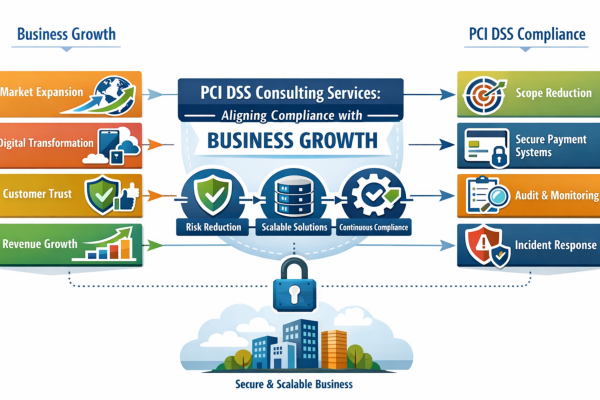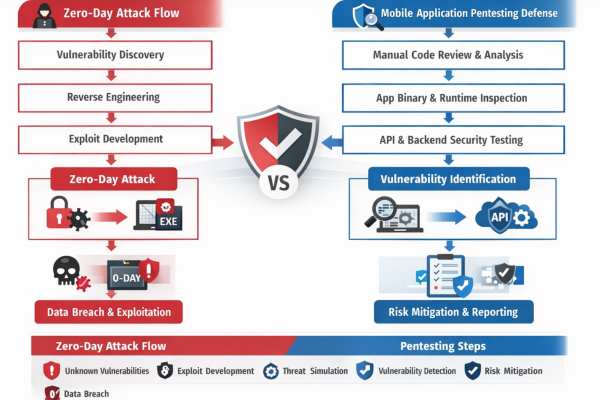Streamlining Modern EHR Platforms with HIPAA Compliance Services
In today’s digital world, healthcare providers depend greatly on Electronic Health Record (EHR) platforms to handle patient data in an organized and efficient way. These platforms store sensitive health information, which must be protected from unauthorized access, data breaches, and misuse. This is where HIPAA Compliance Services become essential.
HIPAA (Health Insurance Portability and Accountability Act) sets the guidelines for protecting sensitive patient information in the United States. Any organization that deals with Protected Health Information (PHI) must ensure that all required security measures are in place. HIPAA Compliance Services in Sheridan, WY, help healthcare organizations meet these legal and ethical responsibilities while improving the performance and security of EHR platforms.
In this blog, we will explore what EHR platforms are, why HIPAA compliance is essential, and how using HIPAA Compliance Services can streamline EHR systems for better performance and protection.
What is an EHR Platform?
An Electronic Health Record (EHR) platform is a computerized system that stores a patient’s medical history. It includes vital information such as:
- Patient demographics
- Medical history
- Diagnoses
- Medications
- Treatment plans
- Immunization dates
- Allergies
- Lab results
EHR platforms enable healthcare providers to quickly access accurate and current patient information. They support better decision-making, improve treatment outcomes, and reduce paperwork. However, because they hold confidential patient data, ensuring their security is a top priority.
Why is HIPAA Compliance Important for EHR Platforms?
EHR platforms handle Protected Health Information (PHI), which covers any details about a patient’s health condition, medical treatment, or payment for healthcare services. Unauthorized access to PHI can result in identity theft, medical fraud, and a loss of patient trust.
HIPAA compliance ensures that all PHI stored and transmitted by EHR systems is kept private and secure. Here’s why compliance is critical:
- Legal Requirement: Non-compliance can result in substantial penalties and legal repercussions.
- Data Protection: Protects against data breaches, cyberattacks, and unauthorized access.
- Patient Trust: Shows commitment to protecting patient privacy, increasing trust and satisfaction.
- Operational Efficiency: Helps streamline data security and privacy policies within the organization.
Using HIPAA Compliance Services ensures that all legal requirements are met and security protocols are followed without burdening internal staff.
What are HIPAA Compliance Services?
HIPAA Compliance Services are professional services provided by cybersecurity and compliance experts. These services help healthcare organizations achieve and maintain compliance with HIPAA rules and regulations.
Some of the key offerings include:
- Risk Assessments: Identify vulnerabilities in the EHR system.
- Gap Analysis: Review current policies and compare them against HIPAA requirements.
- Policy Development: Create policies for data security, access control, and incident response.
- Employee Training: Educate staff about HIPAA rules and data handling best practices.
- Technical Safeguards: Use strong encryption, firewall security, and strict access controls.
- Audit Preparation: Prepare organizations for internal and external HIPAA audits.
By partnering with HIPAA Compliance Services, healthcare providers can focus on delivering care while ensuring that their EHR systems meet all necessary compliance standards.
Key HIPAA Rules That Apply to EHR Platforms
HIPAA includes several rules that directly impact EHR platforms. HIPAA Compliance Services help ensure that these rules are followed correctly:
1. Privacy Rule
The Privacy Rule sets standards for the use and disclosure of PHI. It gives patients the ability to manage and control their health information. HIPAA Compliance Services help organizations create policies to manage access and usage of PHI according to this rule.
2. Security Rule
This rule mandates the use of administrative, physical, and technical safeguards to secure PHI. For EHR platforms, this means:
Strong user authentication
Role-based access control
Encryption of stored and transmitted data
Regular security updates and patches
HIPAA Compliance Services assist in setting up and managing these safeguards.
3. Breach Notification Rule
If a data breach occurs, organizations are required to inform the affected individuals, government authorities, and, in some cases, the media. HIPAA Compliance Services help create incident response plans and ensure timely reporting.
4. Enforcement Rule
This rule outlines the penalties for HIPAA violations. It allows investigations and enforcement actions by the U.S. Department of Health and Human Services (HHS). Compliance services ensure your EHR platform is audit-ready.
How HIPAA Compliance Services Streamline EHR Platforms
Modern EHR platforms can become complex over time. As new features and modules are added, the risk of non-compliance increases. Here’s how HIPAA Compliance Services help streamline them:
1. Standardized Policies and Procedures
Compliance services help develop standardized policies for data access, usage, and protection. This removes confusion and ensures that all team members follow consistent practices.
2. Improved Data Security Architecture
They provide guidance on building a secure EHR infrastructure. This includes secure APIs, database encryption, and network segmentation. These measures reduce system vulnerabilities and streamline data flow.
3. Automated Compliance Monitoring
Many HIPAA Compliance Services offer tools to automate compliance monitoring. These tools continuously scan for vulnerabilities, generate reports, and alert administrators about potential risks.
4. Staff Awareness and Training
Human error by employees is a leading cause of data breaches. Compliance services provide regular training to ensure all staff are aware of HIPAA policies and how to handle PHI properly.
5. Third-Party Vendor Compliance
EHR platforms often interact with other tools and vendors (e.g., labs, pharmacies). HIPAA Compliance Services ensure that all third-party vendors also meet HIPAA requirements.
Benefits of HIPAA-Compliant EHR Systems
When EHR platforms are managed with HIPAA Compliance Services, healthcare organizations enjoy several key benefits:
- Reduced Risk of Fines: Avoid penalties through full compliance with HIPAA regulations.
- Enhanced Data Security: Better protection against breaches and ransomware attacks.
- Improved Workflow Efficiency: Streamlined processes reduce errors and save time.
- Greater Patient Satisfaction: Patients feel more confident knowing their data is secure.
- Better Interoperability: Secure and standardized systems enable better data sharing between providers.
Choosing the Right HIPAA Compliance Service Provider
Selecting the right compliance partner is crucial. Consider the following when choosing a provider:
- Experience in Healthcare: Ensure the provider understands healthcare workflows and EHR platforms.
- Comprehensive Services: Look for end-to-end services—from assessments to ongoing support.
- Custom Solutions: Avoid one-size-fits-all packages. Choose providers who tailor services to your needs.
- Ongoing Support: Compliance is not a one-time task. Continuous monitoring and updates are essential.
- References and Reviews: Check for customer feedback, reviews, and successful implementations.
A good provider will act as a partner, helping you maintain compliance as your EHR platform evolves.
Future Trends: HIPAA Compliance and EHR Technology
As EHR technology evolves, the compliance requirements also continue to change. Some key future trends to watch include:
1. Cloud-Based EHR Platforms
More providers are moving to cloud-based systems for flexibility and scalability. HIPAA Compliance Services help ensure that these platforms stay secure and meet compliance standards.
2. AI and Machine Learning in EHRs
AI tools are being integrated to improve diagnostics and patient care. Compliance experts help assess risks related to automated data processing and ensure proper safeguards.
3. Telehealth Integration
With the rise of remote care, EHR platforms must securely handle video calls, remote monitoring, and digital prescriptions. Compliance services help integrate these features while following HIPAA rules.
4. Mobile Access to EHRs
Healthcare workers increasingly use tablets and smartphones. HIPAA Compliance Services help secure mobile access and manage device policies.
Conclusion
Modern EHR platforms are crucial for effective healthcare delivery, but they must be secure and compliant to safeguard patient data. HIPAA Compliance Services offer the expertise, tools, and guidance needed to ensure these platforms meet all necessary regulations while operating smoothly.
By using these services, healthcare organizations can reduce the risk of data breaches, improve system performance, and maintain patient trust. As EHR technology continues to grow, staying compliant with HIPAA rules will remain a top priority—and partnering with the right HIPAA Compliance Services provider is the smartest way forward.
Author







